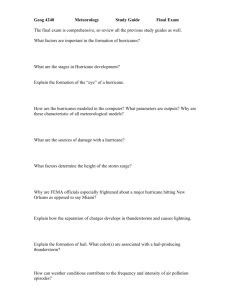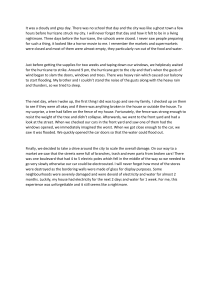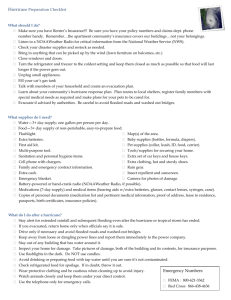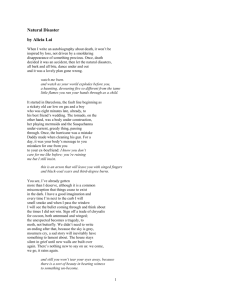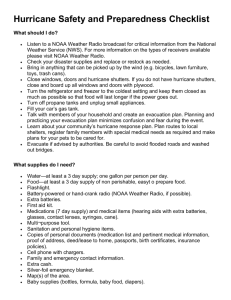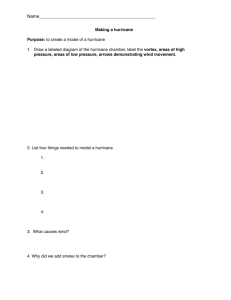Emergency Management and Continuity of Operations Plan Preparation
advertisement
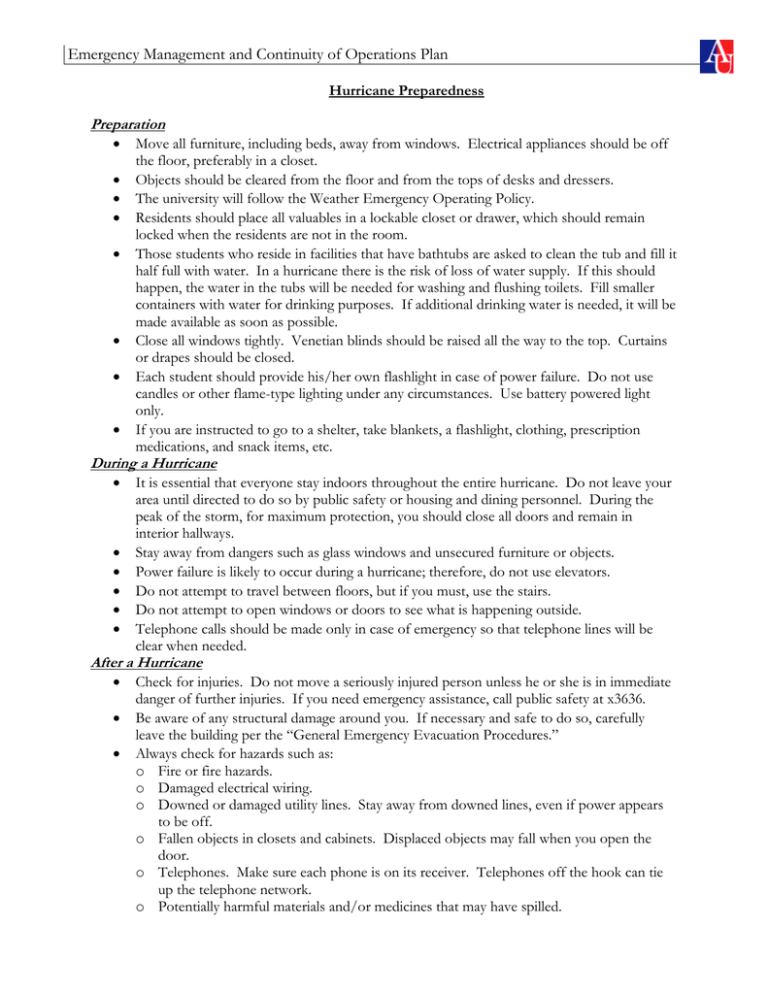
Emergency Management and Continuity of Operations Plan Hurricane Preparedness Preparation Move all furniture, including beds, away from windows. Electrical appliances should be off the floor, preferably in a closet. Objects should be cleared from the floor and from the tops of desks and dressers. The university will follow the Weather Emergency Operating Policy. Residents should place all valuables in a lockable closet or drawer, which should remain locked when the residents are not in the room. Those students who reside in facilities that have bathtubs are asked to clean the tub and fill it half full with water. In a hurricane there is the risk of loss of water supply. If this should happen, the water in the tubs will be needed for washing and flushing toilets. Fill smaller containers with water for drinking purposes. If additional drinking water is needed, it will be made available as soon as possible. Close all windows tightly. Venetian blinds should be raised all the way to the top. Curtains or drapes should be closed. Each student should provide his/her own flashlight in case of power failure. Do not use candles or other flame-type lighting under any circumstances. Use battery powered light only. If you are instructed to go to a shelter, take blankets, a flashlight, clothing, prescription medications, and snack items, etc. During a Hurricane It is essential that everyone stay indoors throughout the entire hurricane. Do not leave your area until directed to do so by public safety or housing and dining personnel. During the peak of the storm, for maximum protection, you should close all doors and remain in interior hallways. Stay away from dangers such as glass windows and unsecured furniture or objects. Power failure is likely to occur during a hurricane; therefore, do not use elevators. Do not attempt to travel between floors, but if you must, use the stairs. Do not attempt to open windows or doors to see what is happening outside. Telephone calls should be made only in case of emergency so that telephone lines will be clear when needed. After a Hurricane Check for injuries. Do not move a seriously injured person unless he or she is in immediate danger of further injuries. If you need emergency assistance, call public safety at x3636. Be aware of any structural damage around you. If necessary and safe to do so, carefully leave the building per the “General Emergency Evacuation Procedures.” Always check for hazards such as: o Fire or fire hazards. o Damaged electrical wiring. o Downed or damaged utility lines. Stay away from downed lines, even if power appears to be off. o Fallen objects in closets and cabinets. Displaced objects may fall when you open the door. o Telephones. Make sure each phone is on its receiver. Telephones off the hook can tie up the telephone network. o Potentially harmful materials and/or medicines that may have spilled.
